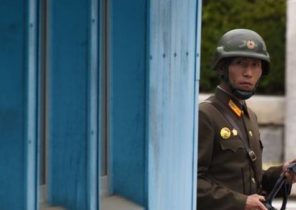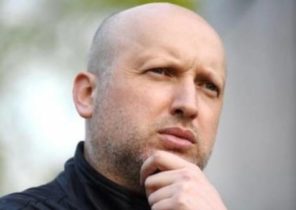August 23, 1942, a few hours before the German bombing of Stalingrad, rose Kharitonov was the last time I came home. She worked in a tank factory in the North of the city, where he was engaged in polishing of crankshafts for the Russian T-34 tanks. Usually she was staying in the factory dormitory. She was 15 years old.
Her mother, as she said by telephone 78 years later, sitting in his one-bedroom apartment in the Renaissance square at the sewing machine “singer” sewing for camouflage suits for the red Army. 14-year-old sister Julia was going to work at the Telegraph — she knew Morse code. Only there were four of them — three sisters and a brother. Twin sister Rose was sick and lying in bed, my brother was at the front. Father left the family before the war. Rose this day for a while called home, told of a colleague in the shop — the Spanish Communist who cared for her, and then ran to the tram stop.
That night, 600 German planes dropped on Stalingrad thousands and thousands of high explosive and incendiary bombs. From the factory where rose worked, there was only one giant crater, which mixed tons of steel, concrete and spare parts. The next morning, this crater came to her mother and sisters. It was only to say goodbye.
She refused to eat turtles
Julia, who worked at the Telegraph, survived the war. Together with mother and sick sister she was able to escape to Uzbekistan. There sister died from typhus and her mother died of starvation in the middle of the desert, giving up is turtles.
Julia turtles ate. She survived and became the Keeper of family heirlooms — nine photographs preserved during the war. On one of them, the three smiling sisters in school uniform. Rose on her pigtails. On the reverse side of Julia is written in blue ink: “Died at the end of August 1942, Kharitonov rose”.
Another photo shows all four of them — three sisters and a brother, who read them from the book. On the reverse side of Julia drew a coffin and flowers and recorded two dates: “November 19, 1942, sister died of typhus. 15 Oct 1944, mother died of hunger.”
She thought she had survived the only one in the family, and left her maiden name even after marriage. She gave birth to four children and named a daughter after the mother and son after the brother.
Brother never returned from the war. When she saw him the last time he was 19 years old. He was handsome, a favorite of the girls. At night Julia dreamed that he runs into soldiers ‘ boots in the flower field. She filed a request to the military archive and received the answer: “this companion document is not found”.
Then came the Internet. Now Julia lives in Penza, about 600 miles from Volgograd — the former Stalingrad. She asked the children to keep looking. At the end of December 2019, shortly before the New year, one of her daughters said, “Mom, sit down, please.”
She said her brother still has no information, but the missing persons database, she came across a request: someone in 2014, looking for her, Yulia Kharitonov. A woman named rose Ponomarev, was in Chelyabinsk — 1200 kilometers away from Penza.
In two weeks I managed to find the phone number of the Rose. Julia was sure that during that bombing, no survivors. She was thinking about what you can ask this suddenly announced Rose: “Where dad was working on? What color are my eyes?”
She didn’t have to ask these questions. As soon as she heard the voice on the other end of the wire, no doubt. “Why in a tank factory we were told that you were dead?!” she exclaimed.
Now Yulia 92, and rose — 93
“When he hit a Junkers, my plant was not,’ replied rose. — Me shortly before it was sent to ferry”.
Julia is now 92 years old, and rose — 93. They spoke to each other for a short time — the conversation was continued by their children. Like Julia, rose is also called one of the daughters after the mother and son in honor of the missing brother.
Four days later, Julia, the youngest of the sisters, got on the train. The rose at the time asked family to bring her curlers. One of the granddaughters recorded a meeting of the sisters on the phone — meeting after 77 years, four months and 25 days.
Rose was sitting on the couch, and Julia was brought on a wheelchair. Was attended by the doctor of “ambulance”. Rose tried to get up, touched her hand to Julia and leaned back on the couch. She burst into tears.
“Why aren’t you looking for me?”
They both leaned forward, face to face.
“Why aren’t you looking for me?” asked rose. All her life she thought that the family forgot about it.
Julia stayed with the sisters for two days. They ate ice cream.
“Remember when we went sledding?”
“Do you remember how we built a sand castle?”
Julia showed rose the nine photos from their childhood Stalingrad, told about the turtles in the Uzbek steppe. Rose spoke about how her ferry was hit by a bomb. Someone pulled her from the water and saved.
They constantly had to disperse to different rooms, to calm down a little. And then they last hugged, and Julia went to the station.
Now they live 1200 miles from each other. Yulia fingers still remember the “Morse code”, rose enjoy communicating with my sister via Skype. It’s just hard to remember the names of the new grandchildren that have suddenly appeared.
The war finally ended.







